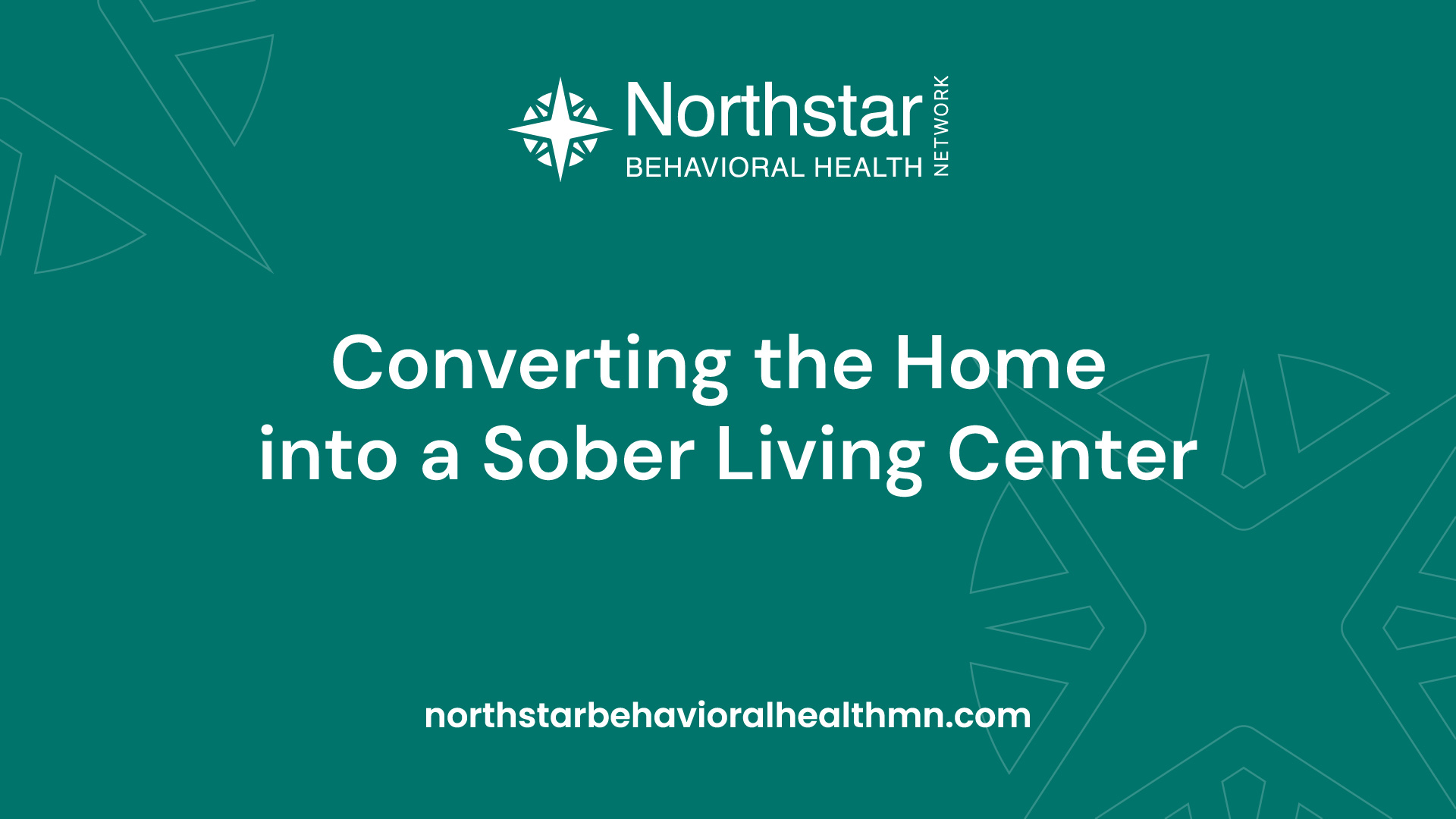August 27, 2024
Matthew Perry's Malibu Home
Matthew Perry opens doors to men seeking sobriety at his Malibu home turned sober living center.


Matthew Perry's Sobriety Initiative
Matthew Perry, best known for his role in the popular sitcom "Friends," has taken a significant step towards supporting individuals in their journey to sobriety. He has converted his Malibu home into a sober living center, providing a lifeline for men seeking recovery.
A Look at Matthew Perry's Malibu Home

Matthew Perry's Malibu home is situated in a serene and secluded location, offering a safe and supportive environment for individuals on the path to recovery. The property boasts spacious living areas, comfortable bedrooms, and outdoor spaces that promote relaxation and reflection.
The home's design and amenities have been carefully considered to create a welcoming and peaceful atmosphere. It provides an environment where residents can focus on their recovery journey and build a strong foundation for a sober and fulfilling life.
Converting the Home into a Sober Living Center

Matthew Perry's vision of converting his Malibu home into a sober living center stems from his own personal experience with addiction and recovery. Recognizing the need for accessible and supportive resources, he decided to transform his residence into a place where men can find solace, guidance, and camaraderie during their recovery journey.
The conversion process involved ensuring that the home met the necessary requirements and regulations to operate as a sober living center. This includes implementing appropriate safety measures, adhering to local guidelines, and providing the necessary amenities and resources to support residents on their path to sobriety.
By opening his home to individuals seeking sobriety, Matthew Perry is making a significant contribution to the recovery community. His initiative provides hope and support to men who are striving to overcome addiction and build a healthier future.
For those who want to learn more about the differences between a slip and a relapse, check out our article on is there a difference between a slip and a relapse?.
Providing Support for Men
In his efforts to support individuals seeking sobriety, Matthew Perry has converted his Malibu home into a sober living center specifically catering to men. This initiative aims to provide a safe and supportive environment for men who are on their journey towards recovery.
The Mission of the Sober Living Center
The mission of the sober living center is to create a space where men can transition from addiction to sobriety with the necessary support and resources. The center aims to foster a community that promotes accountability, personal growth, and long-term recovery. By offering a structured and drug-free environment, the center strives to empower men in their pursuit of a healthier and substance-free life.
Services Offered for Men Seeking Sobriety
The sober living center offers a range of services tailored to meet the needs of men seeking sobriety. These services are designed to provide both practical support and emotional guidance during the recovery process. Some of the key services offered include:
- Safe and Sober Living Environment: The center provides a drug-free and supportive living environment where men can reside as they work towards their recovery goals. This environment promotes a sense of community and camaraderie among residents, fostering a shared commitment to sobriety.
- Structured Daily Routine: A structured daily routine is put in place to help individuals establish a sense of stability and purpose. This routine may include activities such as group therapy sessions, individual counseling, 12-step meetings, life skills development, recreational activities, and employment assistance.
- Peer Support: The center recognizes the importance of peer support in the recovery process. Men residing at the center have the opportunity to connect with others who are facing similar challenges and share their experiences. This camaraderie can be instrumental in providing encouragement and motivation along the journey to sobriety.
- Professional Guidance: Trained professionals, such as therapists and addiction counselors, are available to offer guidance and support throughout the recovery process. These professionals can provide individualized treatment plans, therapy sessions, and help residents navigate any challenges they may encounter.
- Continuing Care: The center aims to facilitate a smooth transition from the sober living environment to independent living. They provide residents with resources and assistance to help them maintain sobriety once they leave the center. This may include referrals to outpatient treatment programs, aftercare support, and ongoing counseling.
By offering these services, Matthew Perry's sober living center provides men with a comprehensive support system to aid them in their journey towards sobriety. It serves as a lifeline for those seeking recovery, providing the necessary tools and resources to build a solid foundation for a healthier and substance-free future.
Understanding Slip vs. Relapse
When it comes to addiction recovery, it's important to understand the difference between a slip and a relapse. Both terms refer to instances where an individual struggling with addiction returns to substance use after a period of abstinence. However, the distinction lies in the duration and severity of the setback.
Differentiating Between a Slip and a Relapse
A slip, also known as a lapse, refers to a temporary and isolated return to substance use. It is often characterized by a brief episode of indulgence, followed by a renewed commitment to sobriety. During a slip, an individual may experience a momentary lapse in judgment or encounter a triggering situation that prompts them to use substances again. However, they quickly recognize their mistake and take immediate steps to get back on track.
On the other hand, a relapse is a more severe setback that involves a sustained return to addictive behaviors. It is often accompanied by a loss of control, leading the individual to revert to their previous patterns of substance abuse. Unlike a slip, a relapse typically indicates a breakdown in the individual's recovery process and may require more intensive intervention to regain sobriety.
How to Respond to a Slip or a Relapse
Responding to a slip or a relapse requires understanding, support, and a non-judgmental approach. It is essential to remember that addiction is a complex disease, and setbacks are not uncommon during the recovery journey. Here are some steps to consider when responding to a slip or a relapse:
- Open communication: Encourage open and honest communication with the individual. Create a safe space for them to share their experience without fear of judgment or condemnation. Active listening and empathy are crucial during this time.
- Reassess triggers: Identify the triggers or underlying factors that contributed to the slip or relapse. Understanding these triggers can help develop strategies to prevent future setbacks. Encourage the individual to explore their emotions, thoughts, and behaviors that may have led to the relapse.
- Reestablish support: Reinforce the importance of a strong support system. Encourage the individual to reconnect with their support network, such as therapists, counselors, or support groups. Remind them that seeking help is not a sign of weakness but a proactive step towards recovery.
- Modify treatment plan: If necessary, reevaluate the current treatment plan with the guidance of professionals. Adjustments may be needed to address any underlying issues or provide additional support to prevent future slips or relapses. Encourage the individual to actively participate in their treatment and follow the recommended strategies.
- Learn from the experience: Encourage the individual to view the slip or relapse as a learning opportunity rather than a failure. Help them identify lessons that can be applied to their ongoing recovery journey. Emphasize the importance of self-compassion and resilience in overcoming setbacks.
Remember, slips and relapses are not uncommon in addiction recovery. It's crucial to approach these situations with understanding and support. By working together, individuals can learn from their setbacks and continue moving towards long-term sobriety. If you or someone you know is struggling with addiction, reach out to a healthcare professional or a helpline for guidance and assistance.
The Importance of Seeking Help
When it comes to addiction recovery, seeking help is a crucial step on the journey towards sobriety. Recognizing the need for support and understanding the benefits of joining a sober living community can make a significant difference in one's recovery process.
Recognizing the Need for Support
Recognizing that one needs support for their addiction is a critical first step towards recovery. It takes courage and self-awareness to acknowledge that a problem exists and that professional help is necessary. Some common signs that indicate the need for support include:
- Persistent cravings and inability to control substance use.
- Failed attempts to quit or reduce substance use on one's own.
- Negative consequences in personal relationships, work, or other areas of life due to substance abuse.
- Increased tolerance and the need for higher doses to achieve the desired effect.
- Withdrawal symptoms when trying to quit or cut back on substance use.
By recognizing these signs, individuals can take the necessary steps to seek professional help and start their journey towards recovery.
Benefits of Joining a Sober Living Community
Joining a sober living community, such as the one established by Matthew Perry in his Malibu home, can provide numerous benefits for individuals seeking sobriety. Some of the key advantages include:
- Supportive Environment: Sober living communities offer a safe and supportive environment where individuals can connect with others who are going through similar experiences. This sense of community fosters understanding, empathy, and encouragement, which are essential for long-term recovery.
- Accountability: Being part of a sober living community helps individuals stay accountable for their sobriety. Regular group meetings, check-ins, and structured routines provide a framework for maintaining sobriety and avoiding triggers or relapse.
- Professional Guidance: Sober living communities often have trained professionals who offer guidance, counseling, and therapeutic interventions. These professionals can help individuals develop coping strategies, address underlying issues contributing to addiction, and provide the necessary tools for long-term sobriety.
- Structured Lifestyle: Sober living communities promote a structured lifestyle that focuses on healthy habits and routines. This includes regular exercise, nutritious meals, and opportunities for personal growth and development. These structured activities help individuals rebuild their lives and establish healthy habits that support their recovery.
- Transition to Independent Living: Sober living communities serve as a transitional phase between treatment programs and independent living. They provide individuals with the opportunity to practice their newly acquired skills, build confidence, and gradually reintegrate into society while maintaining a supportive and sober environment.
Joining a sober living community can significantly increase the chances of successful, long-term recovery. It provides individuals with the necessary support, guidance, and structure to navigate the challenges of addiction and build a fulfilling life in sobriety.
By recognizing the need for support and embracing the benefits of joining a sober living community, individuals can take a proactive step towards their recovery journey. Seeking help is not a sign of weakness but rather a lifeline that can lead to a healthier, happier, and more fulfilling life free from the grips of addiction.
Steps Towards Recovery
Recovery from addiction is a journey that requires commitment and support. It involves taking proactive steps to overcome challenges and make positive changes in one's life. Here are two essential steps towards recovery: building a strong support system and committing to long-term sobriety.
Building a Strong Support System
Building a strong support system is crucial for individuals seeking to recover from addiction. This support can come from various sources, including family, friends, support groups, therapists, and counselors. Having a network of people who understand and empathize with the struggles of addiction can provide encouragement, guidance, and accountability.
Here are some ways to build a strong support system:
- Reach out: Don't be afraid to ask for help. Reach out to trusted individuals who can offer support and understanding.
- Join support groups: Consider joining support groups such as Alcoholics Anonymous (AA) or Narcotics Anonymous (NA) where you can connect with others who are going through similar experiences.
- Attend therapy or counseling: Engage in individual therapy or counseling sessions to explore underlying issues, develop coping strategies, and receive professional guidance.
- Surround yourself with positive influences: Spend time with people who support your recovery goals and encourage healthy behaviors.
- Avoid triggers: Identify and avoid people, places, or situations that may trigger cravings or temptations.
By building a strong support system, individuals have a network of people who can provide encouragement, understanding, and guidance throughout their recovery journey.
Committing to Long-Term Sobriety
Committing to long-term sobriety is an essential step in the recovery process. It involves making a conscious decision to abstain from addictive substances and adopting a healthier lifestyle. Here are some strategies to support long-term sobriety:
- Set realistic goals: Establish achievable goals for yourself, both short-term and long-term, that align with your recovery journey.
- Create a relapse prevention plan: Work with a counselor or therapist to develop a relapse prevention plan that includes strategies for managing triggers and coping with cravings.
- Practice self-care: Prioritize self-care activities such as exercise, proper nutrition, adequate sleep, and stress management techniques.
- Explore new hobbies and interests: Engage in activities that bring joy and fulfillment, helping to distract from cravings and promote a sense of purpose.
- Celebrate milestones: Acknowledge and celebrate your progress and milestones along the way. This can help to reinforce motivation and provide a sense of accomplishment.
Committing to long-term sobriety requires dedication and perseverance. It's important to remember that recovery is a process, and setbacks may occur. If you experience a slip or a relapse, it's essential to seek support and reassess your strategies. For more information on differentiating between a slip and a relapse, refer to our article on is there a difference between a slip and a relapse?
By building a strong support system and committing to long-term sobriety, individuals increase their chances of achieving sustainable recovery and embracing a healthier, substance-free life.

.jpg)




.jpg)

